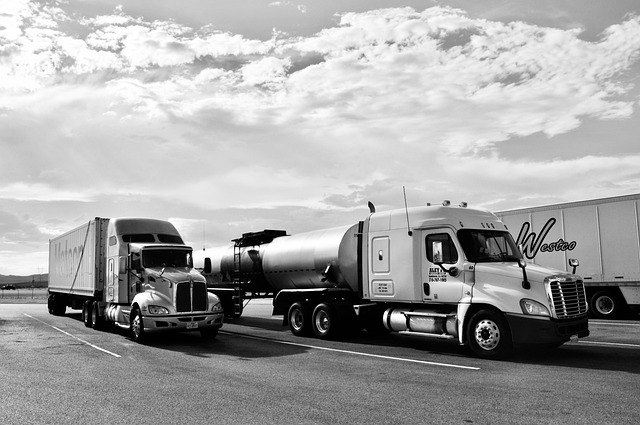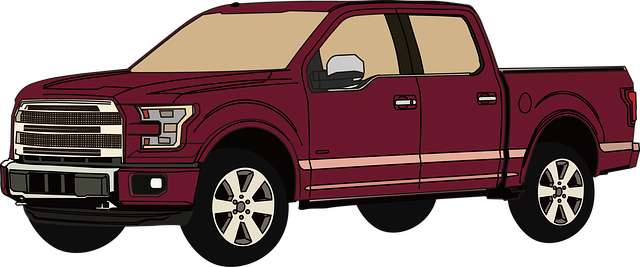Trucking operations face unique risks including high-value assets, long driver hours, and diverse freight types, making effective risk management crucial. Specialized liability coverage for new fleets is essential to protect against financial losses from accidents, property damage, and fatigue-related incidents. Insurers tailor policies to address these specific challenges, offering peace of mind and allowing trucking companies to focus on growth without constant worry of liabilities. The level of liability coverage needed depends on fleet size, usage, and cargo type; consulting insurance professionals ensures adequate protection.
Starting a trucking operation presents unique challenges that require tailored insurance strategies. This article delves into the intricacies of insuring new trucking businesses, focusing on understanding distinct risks and implementing effective risk management practices. We explore the crucial role of comprehensive liability coverage in protecting your investment, especially when acquiring new fleets. By examining key considerations for insuring novice fleets, this guide offers essential insights to help you navigate the complex insurance landscape of the trucking industry.
Understanding the Unique Risks of Trucking Operations

Trucking operations come with a unique set of risks that differ from traditional business models. As a new trucking company enters the market, understanding these risks is paramount to ensure robust risk management and adequate insurance coverage. One of the primary concerns revolves around liability coverage for new fleets. Trucks and their cargo are expensive assets, and accidents can result in significant financial losses. Furthermore, truck drivers often operate long hours under tight deadlines, increasing the chances of fatigue-related incidents.
Additional risks include damage to property and goods during transport, especially considering the diverse and often delicate nature of freight. Environmental hazards, such as vehicle breakdowns or accidents leading to fuel spills, pose further challenges. Insurers need to tailor liability coverage for new fleets to address these unique scenarios, ensuring that the trucking operation is adequately protected against potential losses and liabilities.
The Importance of Comprehensive Liability Coverage

For any new trucking operation, securing comprehensive liability coverage is paramount. This type of insurance safeguards against potential financial losses stemming from accidents or damage to property, which are risks inherent in the trucking industry. With a new fleet, it’s especially crucial, as vehicles and drivers are likely less seasoned and more susceptible to errors that could lead to costly claims.
Liability coverage for new fleets plays a vital role in risk management by offering protection against lawsuits and medical expenses arising from accidents caused by the insured party. It also covers property damage, ensuring that if any of the fleet’s vehicles were to cause harm to someone else’s property, the financial burden is borne by the insurance provider rather than the trucking company. This comprehensive approach ensures peace of mind for new trucking operations, enabling them to focus on growth and efficiency without the constant worry of potential liabilities.
Insuring New Fleets: What You Need to Know

When establishing a new trucking operation, securing adequate insurance is paramount. One of the primary considerations is liability coverage for new fleets. This type of coverage protects your business from financial loss in case of accidents or damages to property. It’s crucial to understand that liability insurance doesn’t just cover your vehicles; it also extends to any injuries or damage caused by them, including legal fees and compensation claims.
Choosing the right level of liability coverage requires careful thought. Factors such as the number and type of trucks in your fleet, their usage (e.g., local vs. long-haul), and the nature of cargo transported all influence the level of protection needed. Consulting with insurance professionals specializing in trucking operations can help you navigate these complexities and ensure you’re meeting regulatory requirements while minimizing financial exposure.
Strategies for Effective Risk Management in the Trucking Industry

Insurers play a pivotal role in mitigating risks for new trucking operations, offering tailored solutions to navigate the industry’s unique challenges. One key strategy is emphasizing comprehensive liability coverage, which protects against potential accidents and associated costs. This includes not just physical damage but also personal injury and property damage liabilities. For emerging fleets, insuring against specific risks like driver shortages, mechanical failures, or regulatory changes is essential.
Effective risk management in the trucking industry involves proactive measures. Insurers can collaborate with clients to implement safety protocols, conduct regular fleet maintenance checks, and offer training programs for drivers. By adopting these strategies, new trucking operations can significantly reduce risks, ensuring a more stable and secure future. Additionally, staying updated on industry trends and regulations enables insurers to customize policies, providing adequate liability coverage for new fleets.
When establishing a new trucking operation, navigating the challenges of insurance is paramount. Understanding the unique risks associated with trucking and prioritizing comprehensive liability coverage are essential steps. Insuring new fleets requires careful consideration of specific requirements and strategies for effective risk management. By arming yourself with knowledge and implementing proactive measures, you can ensure your trucking business operates with the necessary safeguards in place, fostering a safe and successful environment. Remember, thorough insurance planning is key to mitigating risks and securing the future of your fleet.
